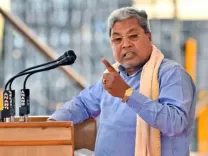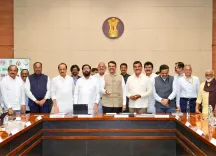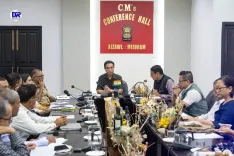Is Traditional Medicine Key to Achieving Universal Health Coverage Goals?

Synopsis
Key Takeaways
- Integration of traditional medicine is essential for effective health policies.
- Holistic health is a fundamental right that needs to be prioritized.
- Collaboration among industry, academia, and government is crucial.
- Standardization of products ensures consumer safety.
- India's rich wellness heritage can lead the global change towards holistic practices.
New Delhi, July 4 (NationPress) Achieving global objectives such as Universal Health Coverage (UHC) is contingent upon the incorporation of traditional medicine into national health policies and wellness frameworks, stated Dr. Kashinath Samagandi, Director of the Morarji Desai National Institute of Yoga within the Ministry of Ayush.
During the third conference focused on beauty, wellness, and traditional medicine organized by ASSOCHAM, Samagandi emphasized that India's future in holistic health lies in merging traditional practices with contemporary policies and methodologies.
He remarked, “Holistic health is a fundamental right, and to genuinely attain it, India must embed traditional systems into the heart of its healthcare architecture.”
The conference convened pivotal stakeholders from both industry and policy to discuss the subject matter.
Dr. Blossom Kochhar, co-chairperson of the ASSOCHAM National Wellness Council, noted, “Beauty and wellness transcend mere appearance; they embody balance, harmony, and inner peace. By uniting nature, science, and self-care, we enhance not only our looks but also our feelings and quality of life.”
“Collaboration among industry, academia, and government is essential to ensure safe, high-quality solutions that build trust, foster global leadership, and positively impact millions of lives, both domestically and internationally,” added Suresh Garg, CMD of Zeon Lifesciences.
Experts highlighted the necessity for the standardization of beauty and cosmetic products to guarantee consumer safety and bolster market credibility.
Vikas Tiwari, Lead of Regulatory Affairs-HPC at Reliance Retail, stated, “By complying with regulatory standards established by CDSCO and BIS, the industry safeguards public health and enables Indian brands to compete confidently on both national and global stages.”
Discussions at the conference focused on the vast potential that India's rich beauty and wellness heritage possesses to spearhead the global movement towards holistic wellness.









